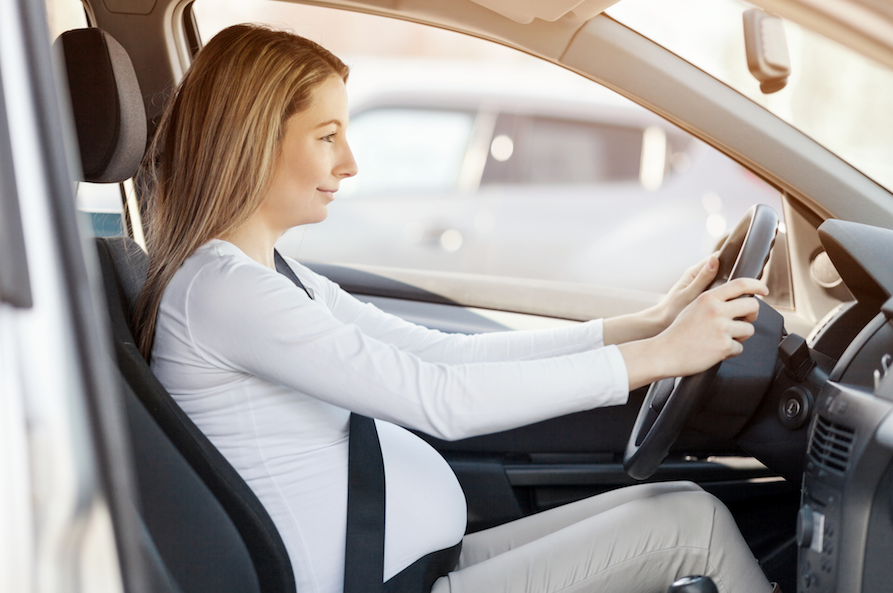Should you stop driving at some point while pregnant? If so, when?
It’s a question many expectant mums find themselves asking.
The short answer to this question is: It depends. Some women continue to drive right up until the birth date. Others find that, once they reach a certain stage of their pregnancy, driving becomes so impractical and so uncomfortable that they have to stop.

Driving while pregnant – what do the experts say?
There are no laws that say you should stop driving while pregnant.
According to the NCT, so long as you feel able to drive, driving while pregnant is usually absolutely fine. There’s no specific point at which you should stop. It’s all down to you, and how comfortable and capable you feel.
The NHS agrees. But they point out that because fatigue and dizziness are common during pregnancy, “it’s important on car journeys to drink regularly, eat natural, energy-giving foods (such as fruit and nuts) and stop regularly for a break.”
Here are some additional tips for driving while pregnant:
- Wear your seatbelt – Avoid wearing “lap only” seatbelts, as they can cause serious injuries to unborn children during sudden stops. Put the top part of the belt over your collarbone and between your breasts, and the lower strap under your bump, not across it.
- Talk to your doctor – They’ll be able to advise on whether you should take any special measures based on your unique condition. They’ll most probably say that you’re fine to drive, but they may advise you to stop at some point. In some cases they may also advise you to stop wearing your seatbelt. If this is the case they’ll give you an exemption certificate, which you should take with you on all journeys, in case you’re stopped.
- Adjust your position – Move your seat back and tilt it to put some distance between your bump and the steering wheel. The more your bump grows, the further you should move yourself from the steering wheel. You may also have to tilt the wheel to make it easier to reach from your new position.
- Plan your journeys – You should avoid long travel wherever necessary. But if a long journey is unavoidable, try to share the driving with someone else, eat and drink regularly and aim to stop at least every 90 minutes to flex your legs.
- Be prepared – Make sure your car is maintained and serviced throughout your pregnancy, to make unwanted breakdowns less likely. It’s best to be extra prepared for breakdowns though, so never travel without a fully charged phone and plenty of food and drink.
If you’re involved in any accident when driving during your pregnancy, no matter how minor, talk to your doctor as soon as possible.
What if I don’t feel able to drive while pregnant?
If you feel too tired, uncomfortable or dizzy during your pregnancy, then don’t drive.
How will you know if it’s not a good idea to drive? You’ll know! Just like when, if you’ve got a cold or the flu, you’ll know when you’re not able to drive. Nobody knows how you feel better than you. It’s up to you to make the call.
And for total peace of mind, make sure you’re covered with comprehensive car insurance for the duration of your pregnancy, and beyond.



